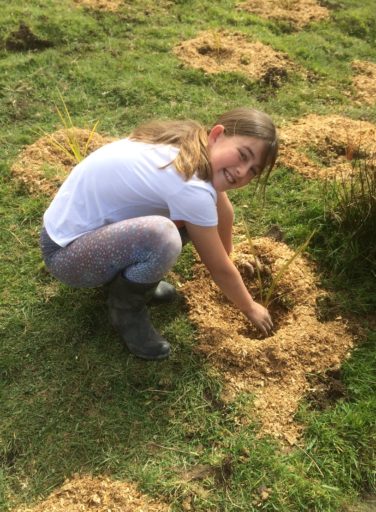Wainui Beach is a small, beachside community on the outskirts of Gisborne. In 2017 the students at Wainui Beach School made nesting boxes for their local little blue penguins. This year they’re putting their building skills to use again with a new project.
“We’re building trap tunnels,” says Years 3 and 4 teacher, Nic Shand. “About half the school have been involved so far – whoever is keen. There are about 270 kids at the school and we’ve built 118 trap tunnels so far with another 50 more kids keen to get involved. We’re hoping to build 170-180 boxes eventually.”

The project is being supported by Predator Free NZ Trust (through the Predator Free Schools programme) and local community trapping group Nga Manu Waiata: Wainui-Okitu-Makorori (a Kiwibank Predator Free Community).
Nga Manu Waiata, Eastland Port and the local community wood donations have provided the timber needed and Nga Manu Waiata has funded T-Rex rat traps.
Wainui Beach School is an Enviroschool and Nic sees predator control as a natural follow-on to 2017 nestbox building project.
“It was the obvious next step in the school’s environmental work,” he says. “I saw the opportunity and I also have an interest in predator control. I’m a part of the local Nga Manu Waiata group. Nga Manu Waiata are currently finding out if we can put the traps out in the dunes to protect the penguins and other species,” he adds. “If we can, then we’ll encourage students to set the traps where they want. Most are likely to be home-based, however, around the Wainui Beach community.”
Trap tunnels are built at the school during ‘Discovery Time’ on Fridays.
“In ‘Discovery Time’ students go to different stations to explore different activities,” Nic explains. “About 15 to 20 students are involved in making tunnels at any one time, working collaboratively with both seniors and juniors together. In the long term the trapping programme will be sustainable, because the kids get to keep the boxes and T-Rex traps and new students coming in will also be able to make their own trap tunnels.”
Thanks to Trees That Count supporting the Predator Free Schools programme, Wainui Beach School also received 100 native trees.
“The trees have been added to our Rongoa Rakau Garden – a medicinal tree garden,” Nic says. “We’ve also got PekaPeka bird feeders and have a shade house where our Shade House Team raise native seedlings for planting.”
A key part of the Enviroschools programme is empowering students to help their environment and Nic has seen that empowerment in action at Wainui Beach.
“One of the students at our school encouraged her family to fence the wetland area on her farm,” says Nic. “We had 350 trees that we raised in the seedling house that we took up there. About 10 students went up and planted the seedlings in the wetland.”
“The support from Kauri Forno (our Enviroschool facilitator) has been invaluable. The family are going to be doing predator control there as well,” Nic adds. “The story has been in the local newspaper and is going to feature on ‘Country Calendar’ shortly.”
A three hectare area of wetland on Mangaone Station, located alongside State Highway 35, was fenced off for the student-grown plantings, with the newly protected area named Mangaone Wainui Wetland and easily visible from the highway.
Next on the agenda for Wainui Beach School is their Inaugural ‘Bring back the birds’ trapping competition – a competition which Nic hopes will become an annual event.
“We’re starting the competition this term and it will run for a month,” Nic explains. “Students will be working with their families to catch as many predators as possible, logging their results with Urban Rat Project and collecting points for various predators with prizes awarded at the end.”
Down on the beach, the little blue penguins can sit snug in their new nesting boxes this spring. Wainui Beach School trappers will be doing all they can to keep penguin chicks, moulting adult penguins and other native wildlife safe.

